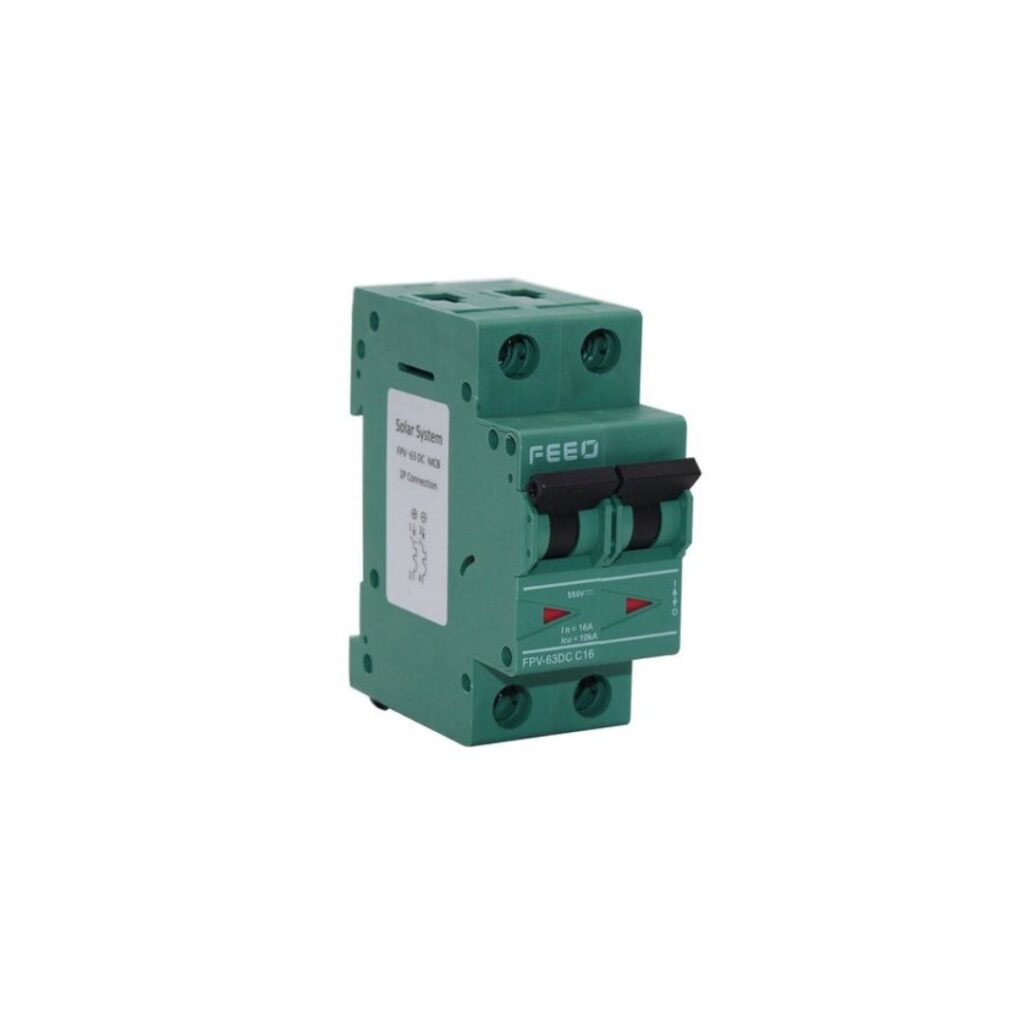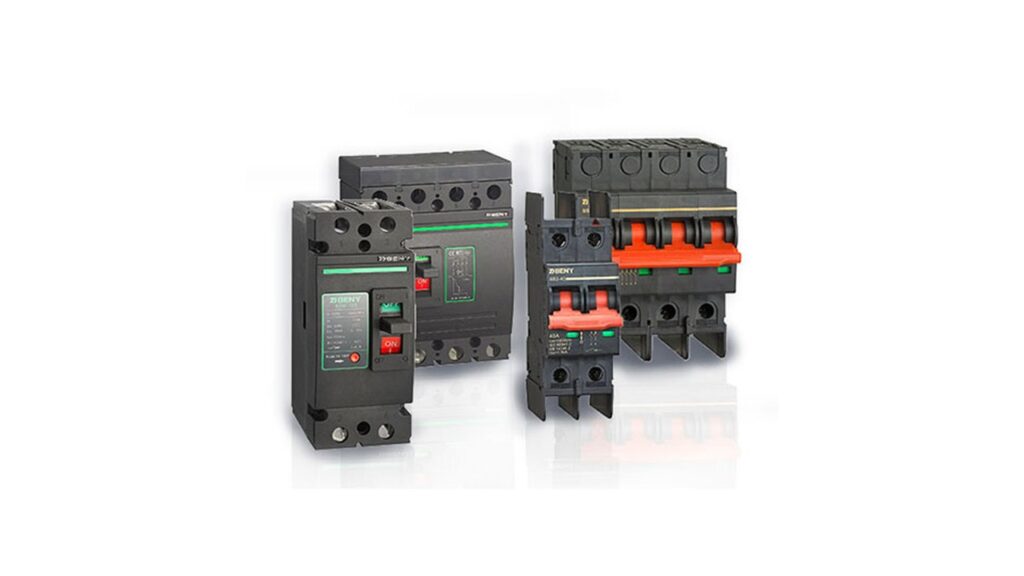As the world increasingly turns towards renewable energy sources, solar power stands at the forefront of the clean energy revolution.
Solar systems harness energy from the sun and convert it into electricity, offering numerous environmental and economic benefits.
However, ensuring the safe and efficient operation of solar systems is paramount. This is where circuit breakers play a crucial role, safeguarding solar installations from potential hazards and optimizing their performance.
Understanding Circuit Breakers in Solar Systems
A circuit breaker is an electrical device designed to protect an electrical circuit from damage caused by excessive current.
In a solar system, circuit breakers serve as critical components that help manage the flow of electricity.
They detect abnormalities in the current and automatically interrupt the circuit to prevent overloads, short circuits, and other potentially hazardous situations.
The Role of Circuit Breakers in Solar Systems

Circuit breakers play a critical role in solar power systems by safeguarding against various potential risks
1. Overcurrent Protection
Solar panels can generate varying levels of electricity depending on factors like sunlight intensity.
In cases of sudden surges in electricity production, circuit breakers act as the first line of defense, interrupting the circuit to prevent damage to the wiring, panels, and inverters.
2. Short Circuit Prevention
Short circuits can occur due to faults in the electrical system, resulting in an excessive flow of current.
Circuit breakers sense these abnormalities and swiftly disconnect the circuit, minimizing the risk of electrical fires and damage to the solar system.
3. Fire Prevention
Faults in solar systems, if left unchecked, can escalate into fires. Circuit breakers mitigate this risk by rapidly isolating the faulty circuit, preventing the flow of electricity that could spark a fire.
4. Maintenance and Safety
Circuit breakers facilitate routine maintenance and repairs. They allow solar technicians to work on specific parts of the system without needing to shut down the entire array, enhancing safety and minimizing downtime.
5. Grid Connection
In grid-tied solar systems, circuit breakers enable a safe and controlled connection to the utility grid.
They ensure that excess electricity generated by the solar panels is safely fed into the grid without overwhelming it.
Types of Circuit Breakers in Solar Systems

1. Overcurrent Circuit Breakers
These are the most common types of circuit breakers in solar systems. They monitor the current flowing through the circuit and trip (open) if the current exceeds a certain predetermined value.
Overcurrent circuit breakers are crucial for preventing damage to equipment and wiring due to excessive current.
2. Ground Fault Circuit Interrupters (GFCIs)
GFCIs are designed to detect ground faults, where current is leaking from the circuit to the ground.
In solar systems, GFCIs play a vital role in ensuring safety by preventing electric shocks and fires caused by ground faults.
3. Arc Fault Circuit Interrupters (AFCIs)
AFCIs are specialized circuit breakers that detect dangerous arcing conditions in a circuit. Arcing can lead to fires, and AFCIs help mitigate this risk by interrupting the circuit when an arc fault is detected.
4. Combination Circuit Breakers
These circuit breakers combine the functions of overcurrent protection, GFCI, and AFCI into a single device.
They are often used in residential solar installations to provide comprehensive protection in one unit.
Importance of Circuit Breakers in Solar Systems

1. Safety
Safety is paramount in any electrical system, and solar installations are no exception. Circuit breakers protect against electrical hazards by preventing overloading, short circuits, and ground faults.
This not only safeguards the equipment but also reduces the risk of fires and electric shocks.
2. Equipment Protection
Solar systems consist of various components, such as solar panels, inverters, batteries, and wiring.
Circuit breakers prevent damage to these components by interrupting the circuit in the event of abnormalities. This extends the lifespan of the equipment and reduces maintenance costs.
3. System Performance
Circuit breakers help maintain optimal system performance by preventing interruptions caused by electrical faults.
This ensures a consistent flow of electricity, minimizing downtime and maximizing energy production.
4. Compliance
Many electrical codes and regulations mandate the use of circuit breakers in solar installations. Adhering to these standards is not only legally required but also essential for maintaining the integrity of the system.
Key Functions and Benefits

1. Overcurrent Protection
Solar system circuit breakers are rated to handle specific current levels. When the current exceeds this rating due to factors like equipment failure or external factors, the circuit breaker trips, interrupting the current flow.
This prevents overheating and potential damage to the solar panels, inverters, and other components, maintaining the system’s longevity.
2. Short Circuit Protection
Short circuits occur when a low-resistance path is established between two points in an electrical circuit. These can lead to rapid and excessive current flow, endangering the system and personnel.
Circuit breakers detect these short circuits and rapidly interrupt the current, mitigating the risk of electrical fires or damage to equipment.
3. Selective Tripping
In complex solar energy setups where multiple strings of solar panels are interconnected, a fault in one string shouldn’t necessarily affect the entire system.
Solar system circuit breakers can be selectively set to trip only the affected section, isolating the fault while allowing the rest of the system to continue functioning.
This feature enhances the system’s overall reliability and minimizes downtime.
4. Maintenance and Troubleshooting
Circuit breakers offer a convenient way to isolate specific segments of the solar system for maintenance or troubleshooting purposes.
By disconnecting a faulty section, technicians can work on that area without disrupting the entire system.
5. Safety
Ensuring safety is a paramount concern in any electrical system. Solar system circuit breakers play a crucial role in preventing electrical hazards and fires that can stem from overcurrents or short circuits.
Their presence enhances the overall safety of solar energy systems for both users and maintenance personnel.
Choosing the Right Circuit Breaker
Selecting the appropriate circuit breaker for a solar power system involves considering various factors such as the system’s current rating, voltage level, and type of protection required.
Additionally, the circuit breaker should be designed to withstand the outdoor environment, as solar systems are often installed in open spaces.
Installation and Maintenance
Proper installation and regular maintenance of circuit breakers are essential for their effective functioning.
It’s crucial to choose circuit breakers with the appropriate current ratings and features for the specific application.
Routine inspections should be conducted to ensure that circuit breakers are free from dust, debris, and corrosion.
Conclusion
Circuit breakers are the unsung heroes of solar systems, providing a vital layer of protection against electrical hazards and ensuring efficient operation.
Their ability to detect and respond to abnormal conditions makes them an indispensable component of any solar installation.
As the world embraces solar power as a cleaner energy alternative, incorporating high-quality circuit breakers is not just a choice, but a necessity for a safer and more sustainable future.
